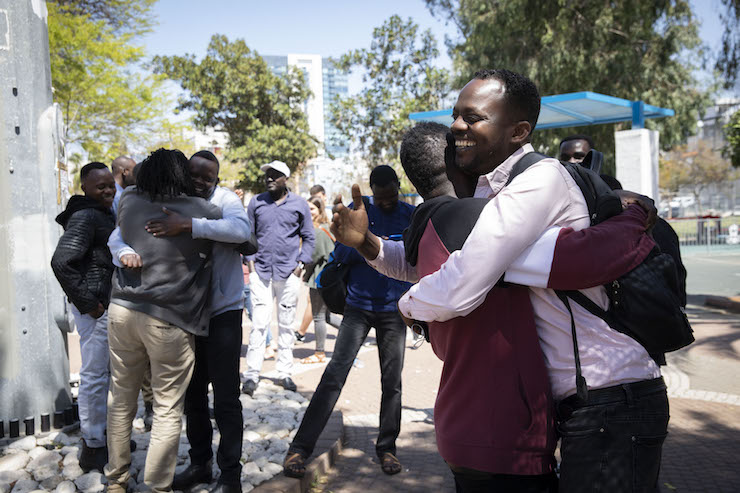The Sudanese refugee community in Israel watched ecstatically as long-time dictator Omar al-Bashir was deposed. But there’s a catch. Listen to the latest episode of The +972 Podcast.

Listen here: iTunes/Apple Podcasts | Google Play | Spotify
“The uprising in Sudan did not start a couple of months ago, it started years ago,” says Mutasim Ali, one of the leaders of the Sudanese refugee community in Israel, who fled Darfur and arrived in Israel in 2009. For Ali and the approximately 7,000 Sudanese asylum seekers in Israel, al-Bashir, who is wanted by the International Criminal Court for crimes against humanity, war crimes and genocide in Darfur, is the very reason they fled their homeland.
“I didn’t really believe that this moment will happen at some point in Sudanese society because, if more than 500,000 people were killed in Darfur and nobody protested to say, ‘hey, this president should not serve anymore and should be indicted,’ I really lost hope. But then all of a sudden I regained my hope and I felt the pride of being Sudanese,” added Ali.
You are the only Sudanese person in Israel to actually have received refugee status. You were the executive director of the African Refugee Development Center. You became a spokesperson of your community, in many ways. What were your hopes then and do you still have them today?
“The struggle was far beyond the status, refugee status, right? It was basically about how refugees and asylum seekers should be treated in Israel. It was about how Israeli society should look at strangers,” explained Ali.
“I had hope that this could work out because we were able to rally thousands of Israelis to bring them together to support our struggle,” he added, referring to a wave of protests in support of refugee rights in Israel in 2014.
When Ali was finally given refugee status in 2016, he believed his case would set a precedent for others like him. “I forgot that giving refugee status for one person cannot serve as a precedent because the government, again, uses the argument of ‘we check individual cases.’ The contradictory part of this is that the government is unwilling even to review individual claims,” said Ali.
“I’m still the one and the only Sudanese refugee to be given refugee status since 2016 until today, which is so unfortunate.”
When you imagine going home, walk me through what that looks like to you.
“I think about this everyday, think about the fact that I’m going to reunify with my family, my close family who lost their home more than 15 years ago, and finally be able to sit with them around a dinner table.”
“I think the experience of being in exile is so tough, and so finally, to feel that I have a land, a country that I can finally go back and serve proudly, and be part of the society, you know, regaining my social connections and be part of my people — I think that is just unimaginable moments and I’m just dreaming of that day to come. And Sudan will 100 percent be a home for everyone who needs it.”
Subscribe here: iTunes/Apple Podcasts | Google Play | Spotify
